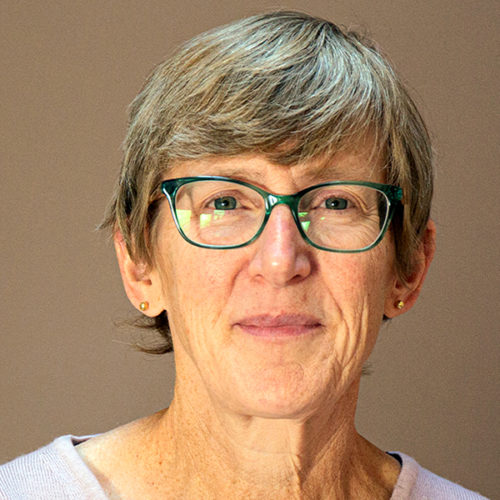Degrees
- B.A., Carleton College 1982
- M.S., Yale University 1984
- Ph.D., Yale University 1987
A Climate Discussion with Dr. Susan Clayton
I consider myself to be a conservation psychologist: interested in understanding and promoting a healthy relationship between humans and nature. Harm to nature can result in harm to humans: I am currently focusing on the implications of climate change for psychological wellbeing. On a more positive note, I have worked with zoos, where a wide and diverse range of people come to interact with wild animals and may learn about nature and about conservation needs during their visit. Underlying all these research topics is my interest, as a social psychologist, in the social processes that promote environmental concern and environmental identity. I also maintain a strong interest in the psychology of justice: how people define what is fair and how they respond to perceived injustice. There are many ways in which environmental challenges present an interesting and important context for examples of justice and injustice.
- PSYC 225: Environmental Psychology
- PSYC 330: Social Psychology
- PSYC 399: Psychology of Justice
- ENVS 300: Sustainability
Recent Books
- Clayton, S., & Manning, C. (2018). Psychology and climate change: Human perceptions, impacts, and responses. New York: Academic Press.
- Clayton, S., & Myers, G. (2015). Conservation psychology: Understanding and promoting human care for nature. (2nd edition). Oxford, UK: Blackwell.
Recent Articles
- Bratu, A., et al. (2022). The 2021 Western North America heat dome increased climate change anxiety among British Columbians: Results from a natural experiment. Journal of Climate Change and Health, in press.
- Colléony, Shwartz, & Clayton (2022). Impacts of nature deprivations during the COVID-19 pandemic: A pre-post comparison. Biological Conservation.
- Harper, S., Cunsolo, A., & Clayton, S. (2022). Including mental health as part of climate change impacts and adaptation assessment: A critical advance in IPCC AR6. PLOS Climate, 1(5): e0000033. https://doi.org/10.1371/journal.pclm.0000033
- Larson, B., Fischer, R., & Clayton, S. (2022). Should we connect children to nature in the Anthropocene? People and Nature. DOI: 10.1002/pan3.10267
- Hickman, C., Marks, E., Pihkala, P., Clayton, S., Lewandowski, E. Mayall, E., van Susteren, L. (2021). A global survey of climate anxiety in children and young people and their beliefs about government responses to climate change. Lancet Planetary Health.
- Baker, C. [Wooster ‘21], Clayton, S., & Bragg, E. (2020). Educating for resilience: Parent and teacher perceptions of children’s emotional needs in response to climate change. Environmental Education Research.
- Clayton, S. (2020). Climate anxiety: Psychological responses to climate change. Journal of Anxiety Disorders, 74.
- Clayton, S. (2020). The insidious impacts of climate change: Mood, mental health, and psychosocial well-being. OneEarth,2, 530-531.
- Clayton, S., & Karazsia, B. (2020). Development and validation of a measure of climate change anxiety. Journal of Environmental Psychology, 69.
- Truong, M.-X., & Clayton, S. (2020). Technologically transformed experiences of nature: A challenge for environmental conservation? Biological Conservation, 244.
- Nielson, K., Clayton, S., Stern, P., Dietz, T., Capstick, S., & Whitmarsh, L. (2020). How psychology can help limit climate change. American Psychologist.
- Clayton was a lead author on the 6th assessment report from the Intergovernmental Panel on Climate Change
- Clayton is a Fellow of the American Psychological Association, the Society for Environmental, Population and Conservation Psychology, the Society for Personality and Social Psychology and the Society for the Psychological Study of Social Issues.
- She is currently on the editorial boards for Journal of Environmental Psychology, PsyEcology, and the Editor for the Cambridge Elements series in Applied Social Psychology.
- She is a member of the Scientific Council for the Institut du développement durable et des relations internationals (IDDRI).

